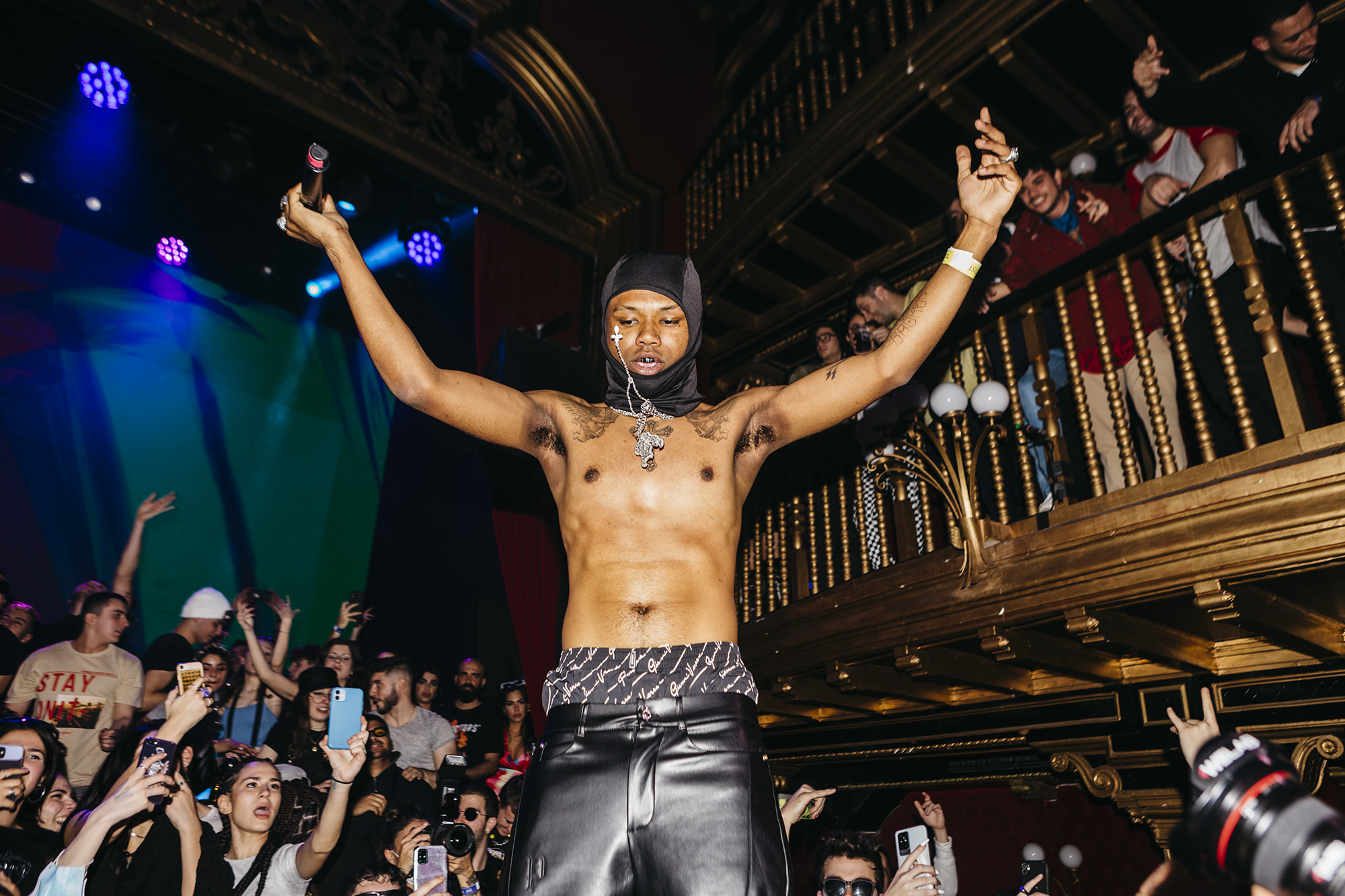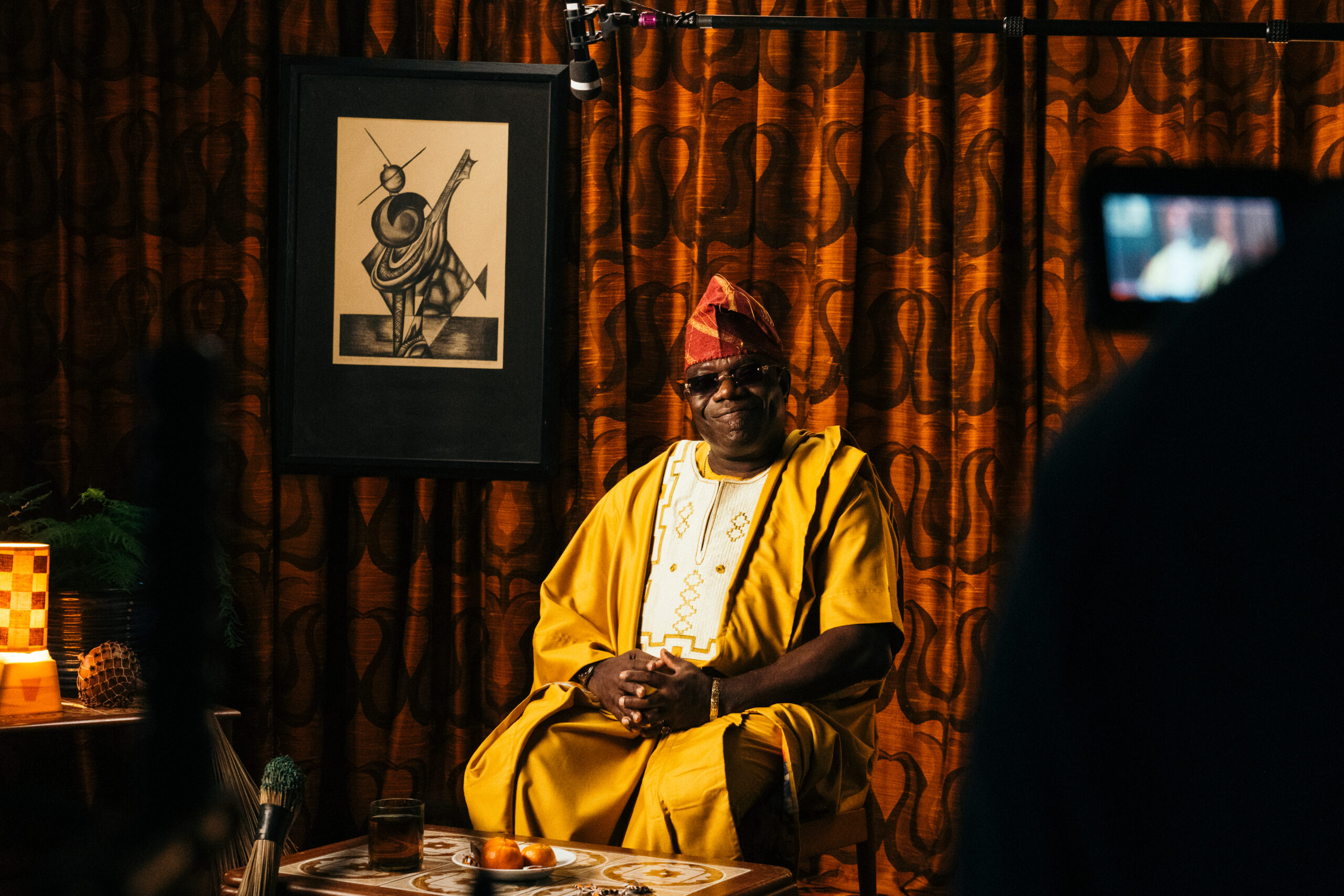
Is it fair to say that Arab culture is “in vogue” in France? Well, these last couple of months alone would suggest so. An ELLE magazine headline wondered if “labneh is the it-girl’s new obsession”; hummus had its own garden party organised on Facebook; the high-end department store Le Bon Marché held a Souk-themed exhibition; and, at this point in time you can spend hours just scrolling through all the “electro-oriental” nights being held around Paris’ night scene. One particular event description – which reads like a game of taboo, where all the lexical and visual indicators of Arabness are pronounced except for the actual word Arab (“berber”: check, “souk”: check, “Oriental”: of course, triple check) – felt like a wind of clarity. It’s appropriation season: the neo-orientalist edition.
There are very few accounts of how cultural appropriation pans out in the very singular French context, one ridden with the dominant white cis and abled culture’s obsession with laïcité, assimilation, and communautarisme. The latter word, less profusely dissected than laïcité (France’s hardcore brand of secularism), refers to the belief that it is dangerous for people of minority ethnic backgrounds and immigrant descent to camp amongst themselves. Unsurprisingly, nobody would speak of communautarisme in instances of white people conglomerating – they hold the privilege of neutrality and universality after all. One could say France is the pioneer nation of colour-blindness. For example, it is prohibited by law to collect statistics on race and ethnicity. So it doesn’t come as a complete surprise that French people are appropriating Arab culture without saying it out loud. Nevertheless, suspicions triggered by this institutionalised colour-blindness raise the question: what space does French-Arab culture hold in the national psyche?
“It’s appropriation season: neo-orientalist édition”
A quick look at French cinema sets the tone for uncovering the nature of Arabness in the mainstream consciousness. There’s a disturbing trend of presenting French-Arab characters in opposition to a white French character or simply in opposition to French culture itself. Neuilly sa mère! is the story of a young French-Arab who moves from his housing projects to a very posh, white neighbourhood and struggles to fit in; Le Brio follows a French-Arab student who is smart but needs to learn the French craft of eloquence through her racist university professor; and Abdel et La Comtesse posits Abdel’s Arab-sounding name in opposition to his white counterpart’s title, the Countess. Without delving into a full analysis, it is already apparent that a dubious French/Arab binary exists and that an Arab character’s journey towards adopting “French” values, i.e. teach me how to be white, is often the narrative arc.
“Nobody would speak of communautarisme in the instances of white people conglomerating – they hold the privilege of neutrality and universality after all”
I remember, a childhood friend interrupting me once as I was speaking of my experience of racism in high school to tell me: “I’ve never really considered you an Arab!”. I was stunned, given she had recently spent some time in Lebanon with my family, practically drenched in my Arabness. Although I had confronted my white-passing privileges in the past as I navigated through French society with slightly fairer skin, grew up in a middle-class neighbourhood, and was raised an atheist, her remark felt like a new form of acquired privilege. My friend knows I am Arab, but she also feels comfortable thinking I’m not. So does Nadine Morano, a very right-wing politician, who infamously tweeted “Le Liban n’est pas un pays Arabe” (Lebanon is not an Arab country). I was challenged with the reality that being “an Arab” was rigidly tied to France’s colonial history with North Africa (especially that of Algeria), and that the pejorative image of the colonised Arab – poor, uneducated, backwards, and Muslim – was not only very much alive, but did not allow for alternative Arab identities to exist. A hundred-euro candlestick from Le Bon Marché is Berber, not Arab and even less so Algerian, because modern Orientalism seeks to detach its immigrant community from its culturally rich roots.
When Maryam Pougetoux, the president of the Sorbonne’s branch of l’UNEF (France’s national student union), was recently interviewed defending the rights of all French students, she faced huge backlash from French politicians and the media because she wears the hijab. Quickly discredited for displaying signs of political Islam, she also sparked insufferable conversations on the incompatibility of Islam and “French values”. It was a real fest for white feminist discourse and TV coverage made it clear that there is no space for a secular hijabi in the French consciousness. Incidentally a few years ago a Syrian-Lebanese actor, Darina Al Joundi, was naturalised by the French interior minister at the time Manuel Valls after he read a review of her play in the paper. Al Joundi is vocally anti-veil. The message these two examples send by comparison is that Maryam, born and raised in France, is more of an Arab, more of an “other”, than a woman who was born and raised in the Arab world. Al Joundi collected her stamp of white approval in the most institutional form that exists: French citizenship.
“It’s time for French-Arabs to reclaim their plural identities”
If Arabs can access and claim white-passing privileges when they separate themselves from what constitutes the Arab stigma, it creates a permeable dynamic of control between white supremacy and the French-Arab identity. White people in France are controlling what constitutes our Arab identities. Taking away our agency and our freedom for self-determination is a dangerous, dehumanising tool, as it actively erases all plurality within the French-Arab society and culture. By leaving it to the dominant culture to decide what is or isn’t “Arab”, they can also appropriate notions such as secularism, education, queerness, and feminism as being white and so, intrinsically theirs. Cultural appropriation doesn’t limit itself to white people celebrating themselves for engaging with a culture they’ve oppressed until now, but it is also an avenue for the dominant class to celebrate themselves for being the guardians of all things progressive. An immediate problem this ensues is that demanding accountability for their sexism, homophobia, ableism, and treatment of minorities in general becomes increasingly difficult. However it also means that French-Arabs cannot exist independently from their relationship to whiteness.
After Beyoncé released the politicised music video for her song Formation, the TV show Saturday Night Live released a skit called “The Day Beyoncé Turned Black”, satirising the shock that most white Americans probably felt upon realising that Beyoncé is a fully-fledged and proud member of the black community. It is about time for a similar shockwave to hit France. And it never felt like a better moment for French-Arabs to reclaim their plural identities in whatever shape or form they manifest themselves, as long as they do not not seek to cater to the dominant white gaze.









